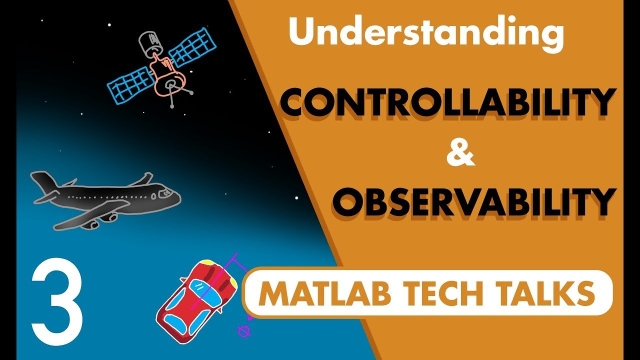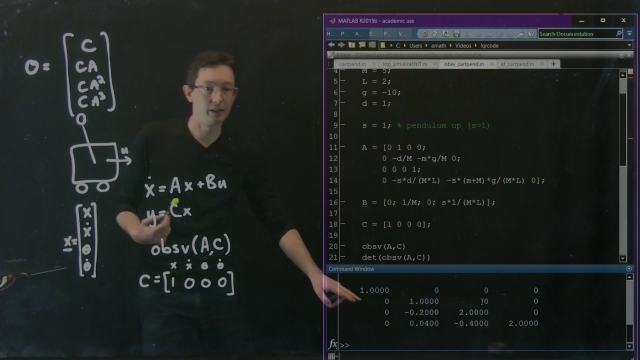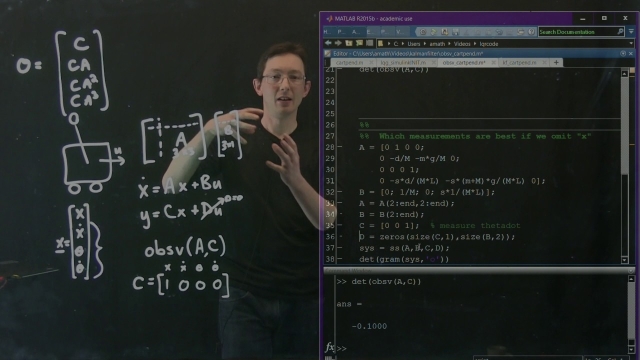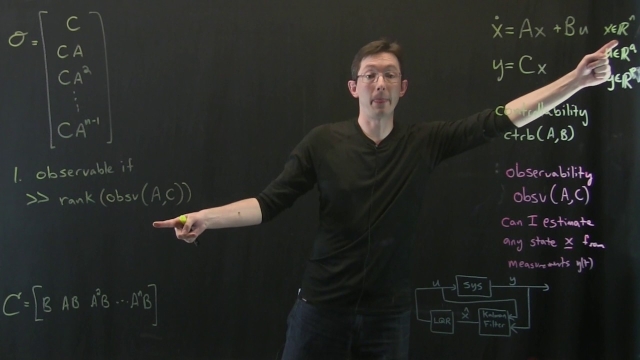In control theory, observability is a measure of how well internal states of a system can be inferred from knowledge of its external outputs. The observability and controllability of a linear system are mathematical duals. The concept of observability was introduced by Hungarian-American engineer Rudolf E. Kálmán for linear dynamic systems. A dynamical system designed to estimate the state of a system from measurements of the outputs is called a state observer or simply an observer for that system.
Consider a physical system modeled in state-space representation. A system is said to be observable if, for any possible evolution of state and control vectors, the current state can be estimated using only the information from outputs (physically, this generally corresponds to information obtained by sensors). In other words, one can determine the behavior of the entire system from the system's outputs. On the other hand, if the system is not observable, there are state trajectories that are not distinguishable by only measuring the outputs.




